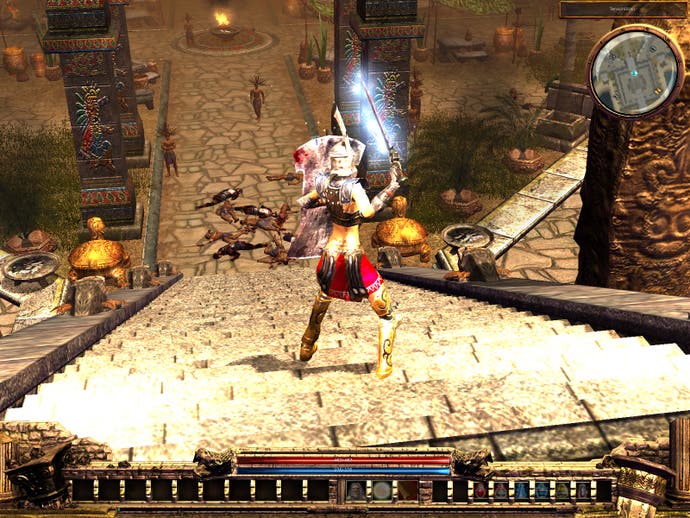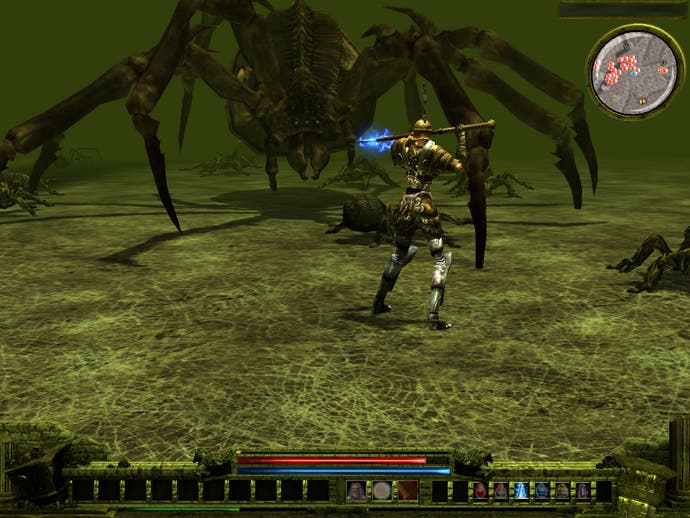Loki
A few tricks up its sleeve.
Next time there's a silly public outcry about a storyline in one of Britain's miserable soap operas, take a moment to shake your head sadly at just how low the national drama has gone. It was so different a few thousand years ago, when the contemporary equivalent of the soap opera was the pantheon of the gods - a crowd of incestuous, violent, criminal, seductive, tricky con-artists whose antics were enough to make Pat Butcher's earrings fall off in shock.
Take Seth, for example. Originally the Egyptian God of the Desert, one of the chief gods of Lower Egypt, he was never exactly a nice chap - rather over-fond of sending vast, murderous sandstorms around the place, for a start. Things only got worse when, jealous of his older brother Osiris' happy marriage to the beautiful Isis (his sister, no less), Seth decided to kill him and dismember the corpse. If a job's worth doing, etc.
Unfortunately, Isis managed to reassemble her husband (and brother, lest we forget), conceived a child using some of his body parts (er...) and then had him embalmed, so that he could rule the underworld as a mummy. Subsequently, everyone decided that Seth was quite nasty, and he became the god of tricks, lies and evil.
Needless to say, this kind of mythology provides fertile ground for videogame designers - and it's to the ancient pantheons of the gods that French developer Cyanide has turned for its first foray into hackandslash role-playing. Named for the Norse trickster god, Loki (who was essentially Seth's northern European opposite number), the game opts to have its cake and eat it by taking cues not only from one mythology, but from four. That's a whole lot of gods.
Role up, Role up

The basic storyline of Loki sees you taking on the role of one of four heroes, and battling to defeat Seth and his allies in the four different mythological eras. The four heroes on offer, two male and two female, conform broadly to the role-playing archetypes you'd expect - namely the warrior, ranger, sorcerer and wizard. More importantly, however, they also fit in with one of the pantheons you'll be battling through. As a result, your choice of character radically changes the path you'll take through the story.
So, for example, the warrior character is a Norse berserker. Start playing as him, and you'll be rescuing the villages of Scandinavia from the armies of Seth's ally, Hel, the god of the underworld, while hunting for Odin, the father of the gods. Choose the Greek hunter character, however, and your first task will be to obey Athena by emulating the epic deeds of the ancient heroes at Troy and elsewhere, before taking the battle to Hades' doors.
Perhaps the most interesting quest, though, belongs to the magic-wielding Aztec shaman. Aztec mythology is rarely explored in role-playing games, with designers choosing instead to stick with the more familiar ground of Greek, Norse, Egyptian or even Far Eastern mythology. Loki, however, not only introduces gods such as the wonderfully difficult to pronounce Quetzalcoatl (and his equally tongue-twisting counterpart, the god of the dead Mictlantecuhtli), but also gives a political edge to proceedings by allying Seth with the Spanish conquistador Cortes, who must be defeated to save the Aztec civilisation.

In essence, then, your starting zone in the game is determined by the class you choose to play, and the first several hours of gameplay will take place in that zone. Once you've finished the storyline of your starting area, you'll have the opportunity to pursue Seth through to one of the other areas, and pick up the story from there; so everyone gets to see the same storyline, but presented in a different chronological order.
In order to make this balance out in gameplay terms, Cyanide has chosen to make enemies in the game level up alongside the player, so you won't be walking into a low-level area with a well-progressed character when you move from one zone to the next. However, moving between zones will offer an interesting challenge, because each zone is balanced for the fighter that starts out in that area. So, for example, the Norse zone is very physical and sees a lot of brawling action - perfect for the Norse warrior, but once the Egyptian sorcerer gets into this zone he'll need to be on his toes to keep up with the action.
From what we've seen so far, minute-to-minute gameplay in Loki pans out pretty much as you'd expect from a hackandslash, and the bulk of the quests and objectives really boil down to an excuse for some fairly solid dungeon-crawling. That said, the game also boasts city and village environments full of various characters, and at least one quest we've undertaken saw us having to defend a village from an attacking force. It's a nice change from the all-too-common RPG mechanic of plodding through endless underground tunnels killing oversized rats.

